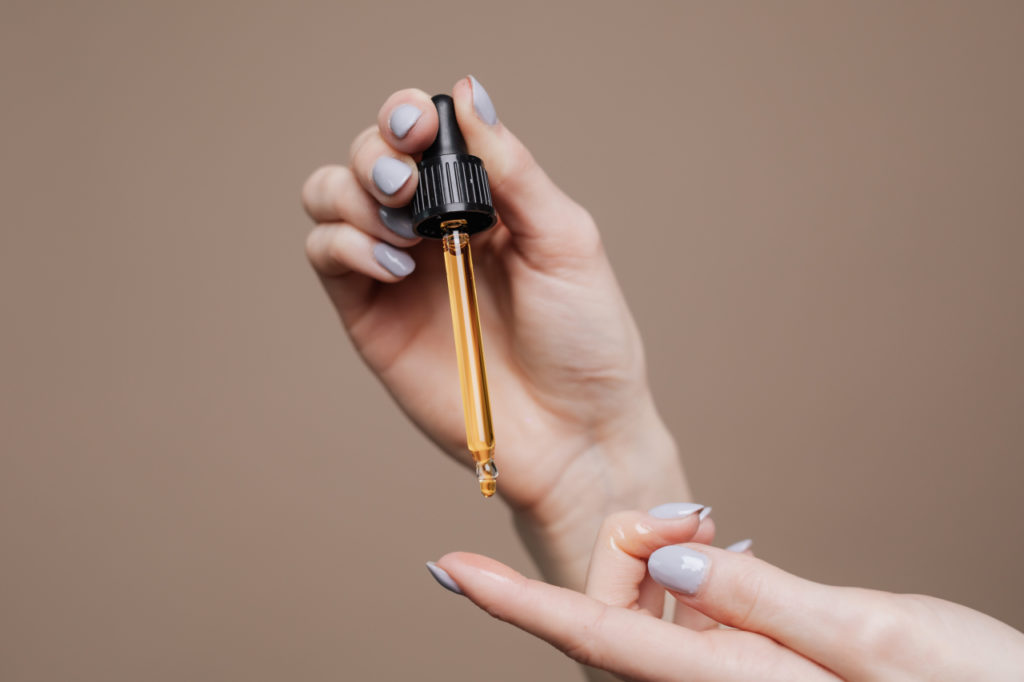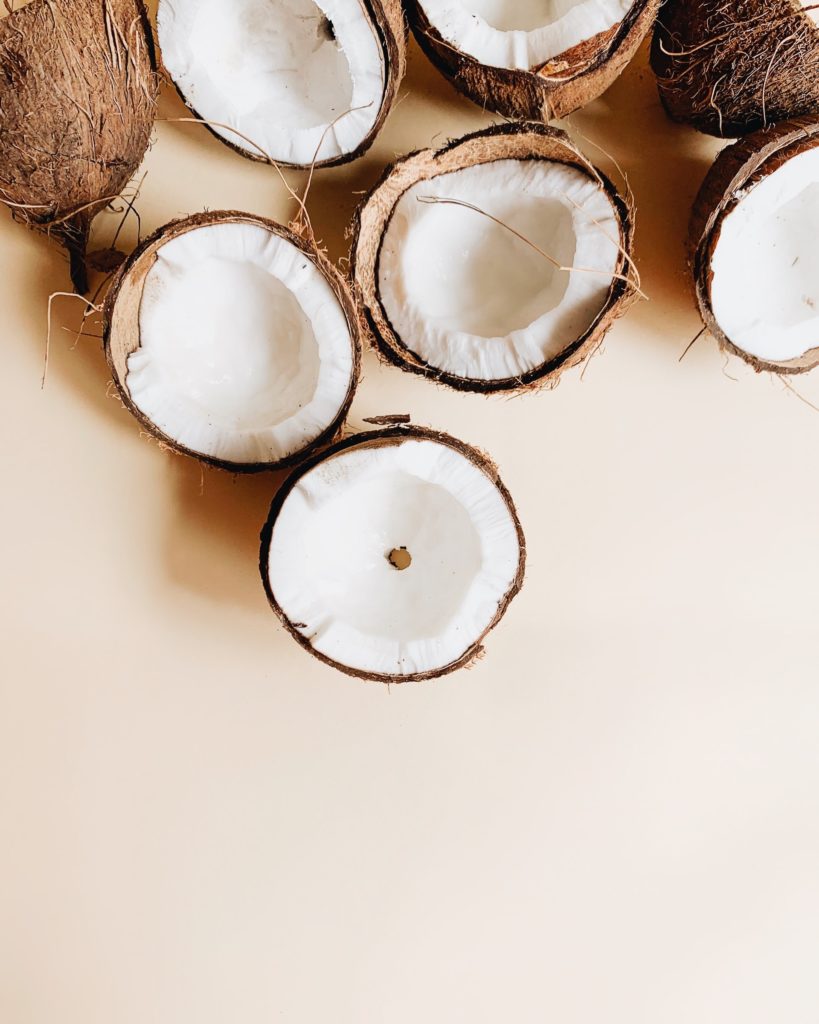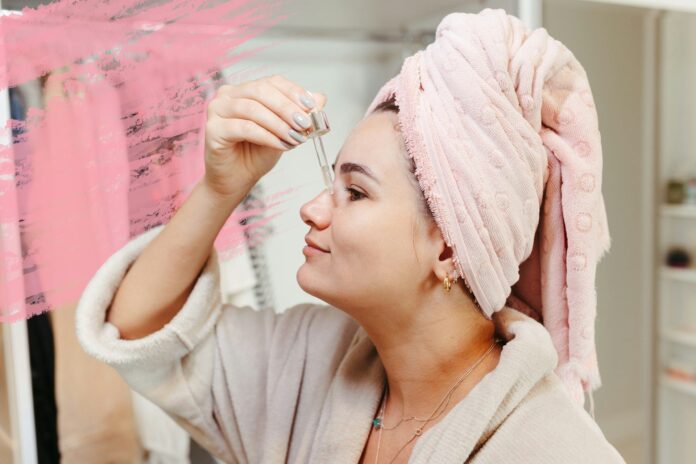
Ideal for those making the move to a cleaner, greener skincare routine.
For teens and adults alike, acne, whether it’s mild or severe, can cause painful and unpleasant outbreaks on the face, back, chest and arms. And perhaps the most frustrating element of acne outbreaks to sufferers is identifying the cause of it.
Because skin that is prone to whiteheads, blackheads or blind pimples (those that are lurking beneath the skin’s surface) is suggestive of a whole range of catalysts, from oxidative damage, poor nutrition, hormonal imbalances or a lack of sleep or stress, making it difficult to find effective remedies to treat this skin condition.
Left untreated acne can trigger diminished self-confidence and long-term hyperpigmentation or even scarring. But the good news is that individuals can use certain natural home remedies to help balance the skin’s oil production, decrease inflammation, kill bacteria, provide blimp pimple treatment and, ultimately, prevent potential acne breakouts. With that in mind, here are 8 remedies to help fight acne naturally, IDEAL for those making the move to a cleaner, greener skincare routine.
HONEY
Honey has been used throughout history to help in treat wounds and skin conditions like acne. It possesses wound-healing and antibacterial properties and is rich in various antioxidants that can help to clear debris from clogged pores, fight bacteria and lower inflammation.
How to use honey for acne?
Take a teaspoon of honey and apply it to affected areas by using a cotton pad or clean finger. You can also mix 1/2 cup of honey with one cup of oatmeal and leave this mask on for 30 minutes. As an alternative, try to combine two tablespoons of honey and one teaspoon of cinnamon or a slice of lemon, and apply this mix to your face. After leaving it on for 10–15 minutes, rinse the face mask off with water.
Do make sure you use raw honey as the most widely available brands of honey are often treated, destroying their antibacterial and anti-inflammatory properties in the process.

CBD OIL
Since different medications for acne can cause side effects, many people prefer to opt for natural alternatives. There’s a growing body of research regarding acne and CBD use showing CBD has the ability to regulate the body’s production of sebum, an oil which the skin produces that causes acne.
Because cannabidiol may also help to prevent inflammation, the redness and pain associated with acne may also be reduced in users.
How to use CBD oil for acne?
CBD infused products come in various types, forms, and concentrations such as tinctures, oils, and different topicals like creams, lotions, balms, and rubs. Such a variety of formats allow each person to find their prefered vehicle for ingestion or application, and choose a suitable product that can fulfil its individual needs.
TEA TREE OIL
Tea tree oil is an essential oil that works as a natural antibacterial and anti-inflammatory remedy, which means that it can help to kill bacteria that causes acne, and diminish skin inflammation. It also helps to relieve adverse effects such as swelling, dryness, redness, irritation and burning.
How to use tea tree oil for acne?
You can use tea tree extract by purchasing creams, gels, essential oils and other tree oil products that are available online.
Combine one part tea tree oil with nine parts of water. Put a cotton swab into the mixture and apply it to affected skin areas and apply a moisturiser if desired. You can repeat this process up to 2 times within a day, as needed.

NATURAL SUPPLEMENTS
In the fight against acne, you can also take natural supplements such as zinc and fish oil:
Zinc is a nutrient that is essential for cell growth, hormone production, metabolism and optimal immune function. Taking zinc orally can also help to reduce acne. As research suggests that individuals with acne tend to have lower zinc levels in their blood, try to consume 30–45 mg of elemental zinc during a day.
Omega-3 fatty acids are healthy fats which have anti-inflammatory properties that can improve acne. Get the advantages of taking a multi-nutrient capsule rich in fish oil, or add more salmon, sardines, anchovies, chia seeds, flaxseeds, and walnuts to your diet. Studies have shown that taking omega 3s may benefit the skin in several ways, including managing sebum production, maintaining adequate hydration and reducing acne.
ALOE VERA
Aloe vera is a tropical plant that acts as a natural moisturiser, antibacterial and anti-inflammatory remedy. The gel from aloe vera is usually added to lotions, creams, ointments or soaps and is used to prevent abrasions, rashes, burns and different skin conditions. When applied topically, aloe vera may help to heal wounds, treat injuries, and relieve inflammation. Aloe vera gel also contains salicylic acid and sulfur, which are both widely used in the treatment of acne.
How to use aloe vera for acne?
Remove the gel from the aloe vera plant and apply it to clean skin as a moisturiser. Repeat this procedure one to two times during a day, or as desired.
Or, if this sounds like a lot of effort, simply moisturise your skin with products that contain pure aloe vera gel without any added components. Such products are available online as well as in various health-food stores.

GREEN TEA
Green tea possesses many reported powers. One of these is that it contains high concentrations of a group of polyphenol antioxidants called catechins. These antioxidants are said to help the body break down chemicals and waste that can damage healthy cells.
As such, using green tea topically can help clear out debris and waste which has built up in open sores of acne. Green tea also includes compounds that may help reduce inflammation, inhibit the growth of propionibacterium acnes, and decrease the skin’s sebum production.
How to use green tea for acne?
You can buy creams and lotions formulated with green tea or simply make your own mixture at home.
Steep tea in boiling water for up to 4 minutes and then allow it to cool. Apply tea to the skin by using a cotton ball or pour into a spray bottle to spritz on pimples. After drying, rinse skin with water and pat dry. You can also mix the remaining tea leaves with raw honey to make a face mask.
COCONUT OIL
Like other successful natural remedies, essential coconut oil is rich in anti-inflammatory and antibacterial components, and has potential in acne treatment. This is because the oil helps to fight acne-causing bacteria and fungus as well as lowering the redness and swelling of pimples, and promoting faster healing in open acne sores.
However, bear in mind that coconut oil isn’t for every skin type and in some cases it may actually exacerbate acne. If you’re a coconut oil newbie, do a patch test before applying it to your skin more comprehensively.
How to use coconut oil for acne?
You can find coconut oil online or in the section of natural foods of grocery stores. Just rub pure, virgin coconut oil directly to the acne area.
To make a simple face mask for tackling acne, use 4-8 drops of tea tree oil and mix it with one teaspoon of coconut oil. Dap lightly this mixture onto the problem skin areas.

ECHINACEA
Echinacea is commonly used to boost the immune system, reduce inflammation, speed wound healing and treat colds and flu. As for acne treatment, several studies have shown that echinacea may improve inflammatory skin conditions such as eczema and acne due to its antibacterial and anti-inflammatory effects. Echinacea is also loaded with compounds that help prevent viruses and bacteria, including those pesky propionibacterium acnes we mentioned earlier.
How to use echinacea for acne?
Keep an eye out for echinacea products as creams or supplements in health stores or online. Once bought, you can use echinacea tea as a daily face procedure by soaking a cotton swab with this tincture and dab it on blemishes. As an alternative, take echinacea supplements or apply echinacea infused creams to areas of acne lesions.





